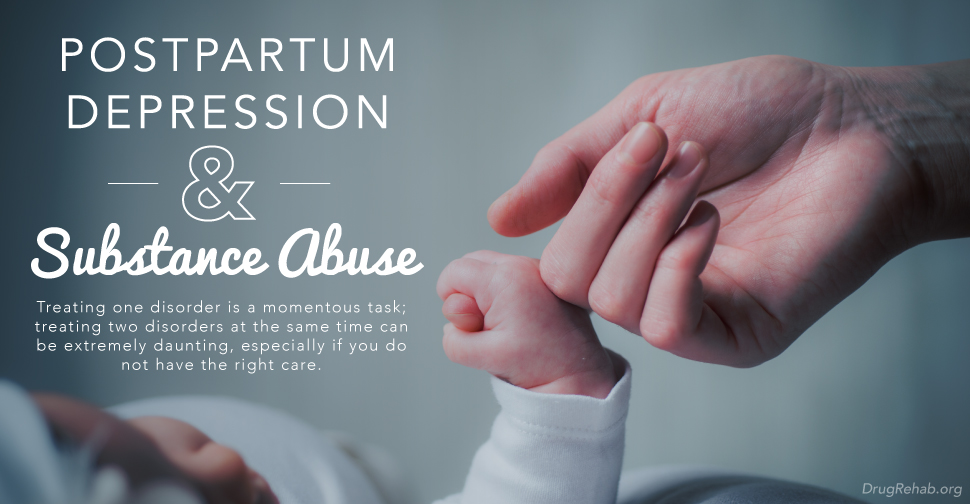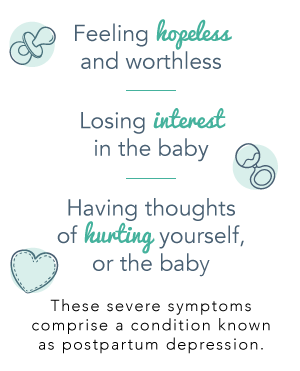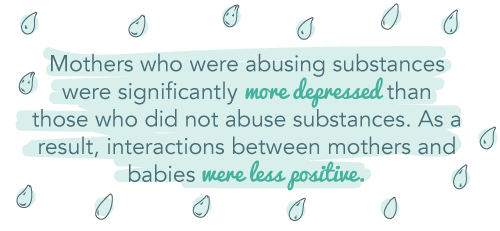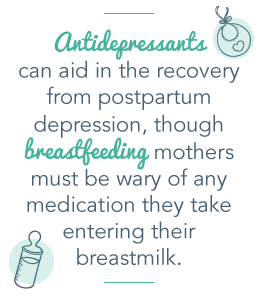
In the first year after childbirth, many women experience some form of the “baby blues.” Most of these symptoms are not severe and do not last very long, according to the U.S. National Library of Medicine. Some of these symptoms may include:
- Mood swings
 Feelings of sadness
Feelings of sadness- Feeling anxious or overwhelmed
- Crying spells
- Loss of appetite
- Trouble sleeping
For most women, these symptoms abate within days or weeks and do not require treatment. For others, though, these symptoms can continue, and may even be accompanied later by worse symptoms, such as:
- Feeling hopeless and worthless
- Losing interest in the baby
- Having thoughts of hurting yourself or the baby
These severe symptoms comprise a condition known as postpartum depression. Unfortunately, the cause of postpartum depression is unknown, and women with a history of depression are at higher risk of developing postpartum depression. Further, postpartum depression left untreated can cause a number of unhealthy side effects for the mother, as listed by the Office on Women’s Health in the U.S. Department of Health and Human Services:
- Eating poorly
- Not gaining enough weight
- Having trouble sleeping
- Missing prenatal visits
- Not following medical instruction
- Using harmful substances, such as alcohol, tobacco, and illegal drugs
How Substance Abuse Affects Postpartum Depression
Two recent studies have documented the co-occurrence between substance abuse and postpartum depression. La Leche League International saw that the first study followed a total of 391 pregnant women for whom substance abuse coupled with life stressors which predicted depression in pregnancy and postpartum depression. The second, more narrow study compared 12 mothers who abused substances and 12 mothers who did not abuse substances, at both three and six months postpartum. As suspected, the mothers who were abusing substances were significantly more depressed than those who did not abuse substances. Also, as a result of the substance abuse and life stressors, the interactions between mothers and babies were less positive for the mothers who were abusing substances.

Substance abuse is, sadly, one of several disorders which can co-occur alongside postpartum depression, and the treatment of substance abuse should not be taken lightly for postpartum depressed mothers. The key to treatment for postpartum depressed mothers is, like so many comorbid disorders, to have proper diagnosis and appropriate treatment for both disorders.
Treating Postpartum Depression And Substance Abuse Together
Since treating postpartum depression and substance abuse together means finding the best treatment for each disorder, it is important that each person struggling with addiction have information for the types of treatment available in order to make the best choice for treatment in regards to her needs.
 Some types of treatment for postpartum depression include antidepressants and psychotherapy, the Mayo Clinic states. Antidepressants can aid in the recovery from postpartum depression, though breastfeeding mothers must be wary of any medication they take entering their breastmilk. Psychotherapy helps mothers talk to a psychiatrist about their depression—a method proven to help.
Some types of treatment for postpartum depression include antidepressants and psychotherapy, the Mayo Clinic states. Antidepressants can aid in the recovery from postpartum depression, though breastfeeding mothers must be wary of any medication they take entering their breastmilk. Psychotherapy helps mothers talk to a psychiatrist about their depression—a method proven to help.
As for treating substance abuse, there are many methods available, and those individuals seeking treatment should be careful in selecting their treatment method to ensure it is in line with their needs for treating postpartum depression. In any case, successful treatment of substance abuse includes several steps, comprised of the following:
- Detoxification, or ridding your body of the drugs
- Behavioral counseling
- Medication for alcohol, tobacco, and opioid addiction
- Evaluation and treatment of co-occurring mental health issues, such as depression and anxiety (or in this case, postpartum depression)
- Long-term follow up, which prevents relapsing
Finding The Unique Help You Need
Treating one disorder is a momentous task; treating two disorders at the same time can be extremely daunting, especially if you do not have the right care. If you are a mother, or if you know someone who is a mother, you know that the first year after giving birth can be difficult. Add to that difficult time depression and  substance abuse, and the year can be overwhelming. If you are struggling with postpartum depression, and it has driven you to substance abuse, or if you already struggle with substance abuse and are soon to be postpartum, do not let these disorders get in the way of your life or your baby’s life. Contact us today at DrugRehab.org to seek the help you need and deserve.
substance abuse, and the year can be overwhelming. If you are struggling with postpartum depression, and it has driven you to substance abuse, or if you already struggle with substance abuse and are soon to be postpartum, do not let these disorders get in the way of your life or your baby’s life. Contact us today at DrugRehab.org to seek the help you need and deserve.
Sources
La Leche League International– New Studies In Postpartum Depression
Mayo Clinic– Postpartum Depression: Treatment And Drugs
National Institute on Drug Abuse– DrugFacts: Treatment Approaches For Drug Addiction
Office On Women’s Health, U.S. Department of Health and Human Services– Depression During And After Pregnancy Fact Sheet
U.S. National Library Of Medicine– Postpartum Depression
